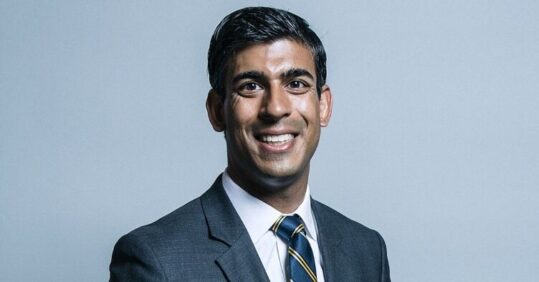Rishi Sunak: What does the new PM mean for nurses?

Rishi Sunak has today been appointed as United Kingdom’s Prime Minister, inheriting a political, and economic situation even direr than that taken on by his shortlived predecessor, Liz Truss.
With all his rivals having pulled out of the leadership race, Mr Sunak has taken up his place in Number 10 without a prolonged battle. Yet for the new PM, the difficulties may just be beginning.
As the nation waits to see what this change in leadership will bring, Nursing in Practice takes a look at the new PM’s record to see what his premiership might hold in store for nurses.
Sunak on public health
Related Article: ‘Patients not prisoners’: Palliative care nursing behind bars
Mr Sunak defended the scheme, saying ministers had to make ‘difficult trade-offs’ during the pandemic and that ‘having a difficult economy has an impact on both our ability to fund public services like the NHS but also on individual people’s long-term health outcomes’.
Mr Sunak has also made ambitious promises to tackle the NHS backlog which he said, in a campaign video released in July, was the ‘biggest public service emergency’ facing the UK, and an issue he would make his ‘number one public service priority’.
The new PM will also need to hit the ground running after promising that every patient waiting more than 18 weeks would be contacted within 100 days of his appointment.
When running for the Conservative leadership in the summer, a contest which he lost to Ms Truss, Mr Sunak suggested to The Sunday Telegraph that he would introduce a £10 fine for missed GP appointments to solve long waiting times. It is unclear whether he will carry out this plan now as PM.
To support his backlog targets, Mr Sunak has also committed to rolling out 200 more community diagnostic centres, with 92 already launched by the Government, which said in October that it has ambitions to open up to 160 by 2025. These carry out blood tests, CT and MRI scans from non-hospital locations with the intention of cutting down time to diagnosis.
Mr Sunak has not commented on who would staff these community centres, however he has said that his plans will likely require the expansion of the number of overseas nurses brought into the NHS.
Related Article: Gypsy, Roma and Traveller healthcare: How can primary care serve this group?
Sunak on NHS funding
In March, the Treasury doubled the NHS’s annual efficiency target to 2.2%, as part of a series of major cost cuts and a ‘crackdown’ on ‘wasteful spending’. Mr Sunak said that this would ‘ensure every pound of taxpayer’s money’ spent on the health and social care levy ‘is well spent’.
But on 22 September 2022, the next Chancellor Kwasi Kwarteng reversed the 1.25% NI increase and withdrew the levy. The introduction of a separate tax for the Health and Social Care Levy in April 2023, to replace the NI rise, was also cancelled, while the rise in NI was also removed for the remainder of the 2022/23 tax year.
Sunak on workforce
Rishi Sunak has, so far, remained fairly quiet on the issues surrounding the NHS workforce. Despite big plans to cut down the backlog and introduce more diagnostic centres, the Prime Minister has scarcely touched on retention and pay issues for nurses.
Related Article: Raising the profile of social care nursing and encouraging research in London
The general secretary and chief executive of the RCN, Pat Cullen, said: ‘Rishi Sunak must now decide if he wants to be the prime minister who cut the NHS and social care to the bone or one that invested in its people, patients and priorities.
‘He might be new to Number 10 but nursing staff will remember that this year’s real-terms NHS pay cut was designed by Sunak from his treasury desk.’

See how our symptom tool can help you make better sense of patient presentations
Click here to search a symptom




